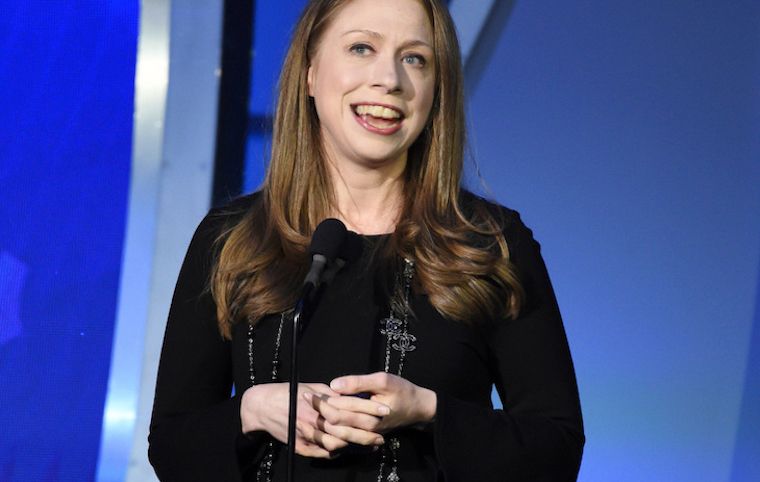Chelsea Clinton has asked social media companies to censor and punish people who criticize vaccines online.
During a pre-recorded online meeting at a Vatican conference, Clinton responded to a question about “vaccine hesitancy” by saying that there must be a global crack down on people who go against the mainstream narrative.
“I personally very strongly believe there has to be more intensive and intentional and coordinated global regulation of the content on social media platforms,” she said.
“We know that the most popular video across all of Latin America for the last few weeks that now has tens of millions of views is just an anti-vax, anti-science screed that YouTube has just refused to take down.”
Lifesitenews.com reports: Clinton added that anti-vaccine content created in the United States “flourishes” across the world by way of social media platforms. Her attempts to convince the managers of these sites to remove the material has not worked, she said.
“We know that — because I have tried — that appealing to the leadership of these companies to do the right thing has just not worked, and so we need regulation.”
Clinton is the Vice President of the Clinton Foundation and the daughter of former President Bill Clinton and former Secretary of State Hillary Clinton. Like her parents, she is an outspoken advocate for abortion.
She appeared alongside Dr. Paul Farmer of Harvard Medical School and Dr. Walter Ricciardi, the Italian president of the World Federation of Public Health Associations, at a pre-recorded online meeting forming part of the Fifth International Vatican “Unite to Prevent & Unite to Cure” conference. Their meeting was first aired today.
Clinton said that the Clinton Foundation has been doing what it can to convince the “vaccine hesitant” and the “vaccine refusers” to take doses of the COVID-19 vaccines. She believes it is important to differentiate between people who are “hesitant” and those in the “refusal group.” The “hesitant” have questions that she can answer, for instance regarding the speed at which the vaccines were developed, their ingredients, and “conspiracies about microchips.”
The people in the “refusal group,” “often young people, don’t think they need the experimental vaccine or would prefer to wait a few years before taking it, Clinton added. They also include people in communities who “have been maltreated” by the American “health system for generations.”
Clinton said that her foundation thinks about “how we talk to black Americans, indigenous Americans, Latinos who know that members of their community have often been mistreated or even manipulated or exploited by our health care system.”
In response, the Clinton Foundation passes on advice to people trusted by those communities to convince them to take the COVID-19 injections.
“We try at the Foundation to really help equip trusted messengers, whether in health care settings or not,” Clinton said. “We’ve done work with a number of different religious communities, including some of our Catholic partners to really help ensure that whoever is able to have the conversation is really able to pre-empt or to answer any questions people may have.”
The message Clinton wants to get out to refusers is that the vaccines and vaccinators are waiting for them whenever they are comfortable.
“And we’re going to keep reaching out and try to help you get comfortable,” she added.
“So we’re just doing everything and anything we can … and we’re increasingly thinking about how we can engage in this work globally, too, because unfortunately vaccine hesitancy and vaccine refusal are not uniquely American challenges.”
Clinton made it clear that her views about “regulation” of social media content were her own and not those of the Clinton Foundation.

